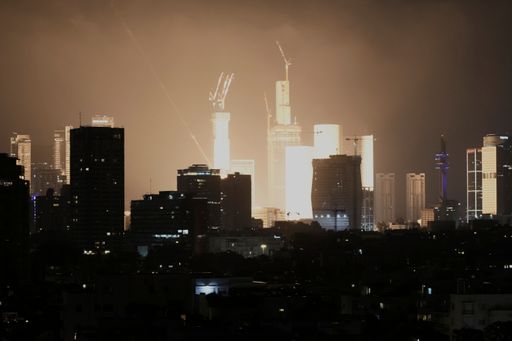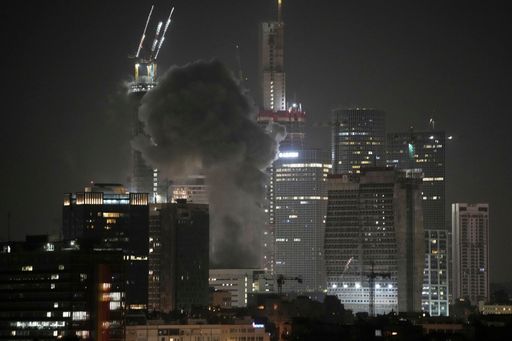Arab states have intensified diplomatic efforts to contain regional tensions after Israeli air strikes targeted Iranian nuclear facilities, military installations and homes of officials. Tehran says dozens of civilians have been killed in Israeli strikes.
Saudi Arabia, Qatar, Egypt, Jordan, Kuwait, Iraq and Palestine warned on Friday of major regional conflict as Israel initiated attacks on Iran, followed by Tehran's retaliatory strikes that left one Israeli dead and dozens wounded.
Saudi Arabia’s Crown Prince Mohammed bin Salman discussed the situation with US President Donald Trump.
The Saudi foreign minister also spoke with his Iranian counterpart, condemning the Israeli strikes as a setback to regional diplomacy.
Qatar's foreign minister expressed "deep concern" and pledged to work with partners to prevent further escalation.
The UAE, Oman, Egypt, Jordan, Kuwait and Iraq issued similar warnings and urged all parties to respect national sovereignty and pursue diplomatic solutions.

Jordan's foreign minister warned that his country would not tolerate airspace violations.
Iraq filed an official complaint to the UN Security Council, demanding accountability for Israeli use of Iraqi airspace in the strikes.
Palestinian officials also urged regional coordination to prevent the situation from spiralling into a wider war.
Israel began attacking Iran early on Friday, targeting Iran's nuclear, military and civilian areas, killing its top military commanders and scientists.
The attacks continued until Friday night, with cities such as Tehran, Natanz, Tabriz, and Isfahan reportedly being hit.
Iran then launched a retaliatory attack, codenamed Operation True Promise III, on Friday night, hitting many areas, including Tel Aviv, where Iranian missiles also struck the Kirya compound — home to the Israeli military's central command and the Ministry of Defense — which is often dubbed as Israel's "Pentagon".




















